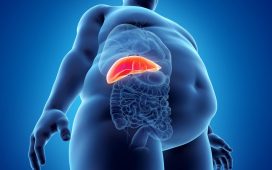Psychosomatic symptoms increased for those with low body mass and overweight or obesity versus healthy weight
By Elana Gotkine HealthDay Reporter
FRIDAY, May 17, 2024 (HealthDay News) — There is a U-shaped association between adolescent body mass index (BMI) and mental health, according to a study published online May 15 in JAMA Psychiatry.
Shanquan Chen, Ph.D., from the London School of Hygiene & Tropical Medicine, and colleagues estimated the association between BMI and mental health and examined changes from 2002 to 2018 in a repeated multicountry cross-sectional study. Data were obtained from the Health Behaviour in School-aged Children survey in Europe and North America, including a study population of 1,036,869 adolescents (527,585 girls) aged 11 to 15 years.
The researchers identified a U-shaped association between BMI and mental health. Compared with those with healthy weight, adolescents with low body mass, overweight, or obesity had increased psychosomatic symptoms (unstandardized β, 0.14, 0.27, and 0.62, respectively), while fewer symptoms were seen for adolescents with underweight (β, −0.18). Across different years, sex, and grade, the association was observed. Psychosomatic concerns increased significantly in 2006, 2010, 2014, and 2018 compared with 2002 (unstandardized β, 0.19, 0.14, 0.48, and 0.82, respectively). Significantly higher psychosomatic concerns were seen for girls than boys (unstandardized β, 2.27). Psychosomatic concerns increased significantly in middle and high school versus primary school (unstandardized β, 1.15 and 2.12, respectively).
“These insights can inform public health and school programs, emphasizing correcting body image misconceptions, encouraging healthy weight, and creating supportive peer environments,” the authors write.
Copyright © 2024 HealthDay. All rights reserved.








